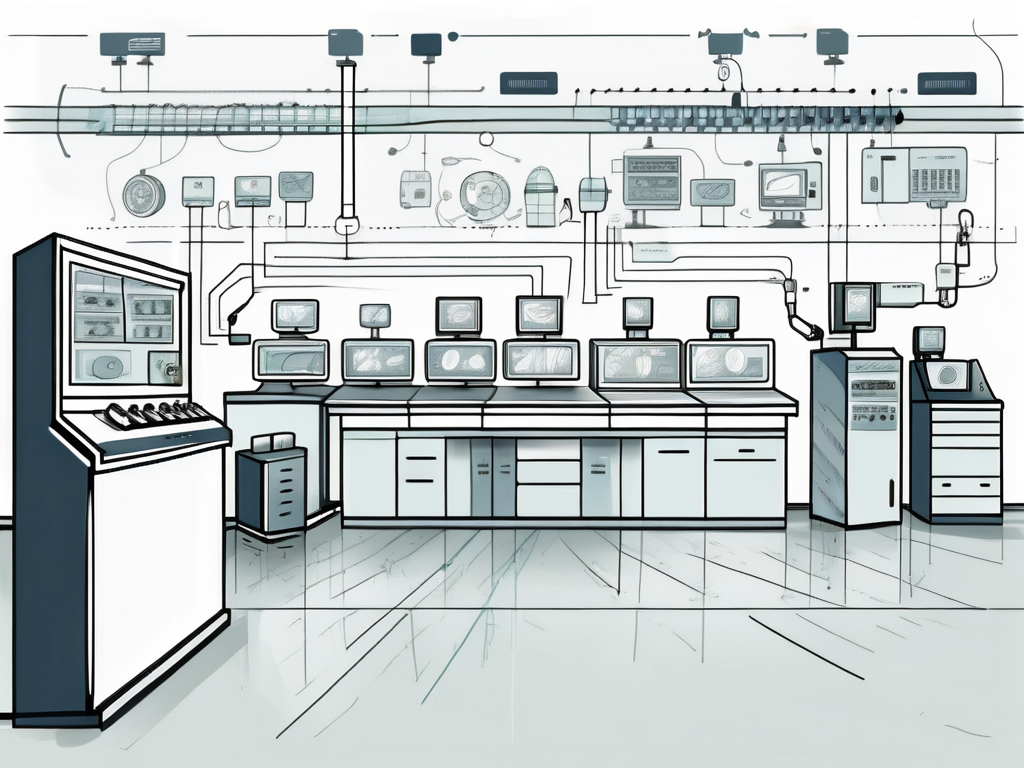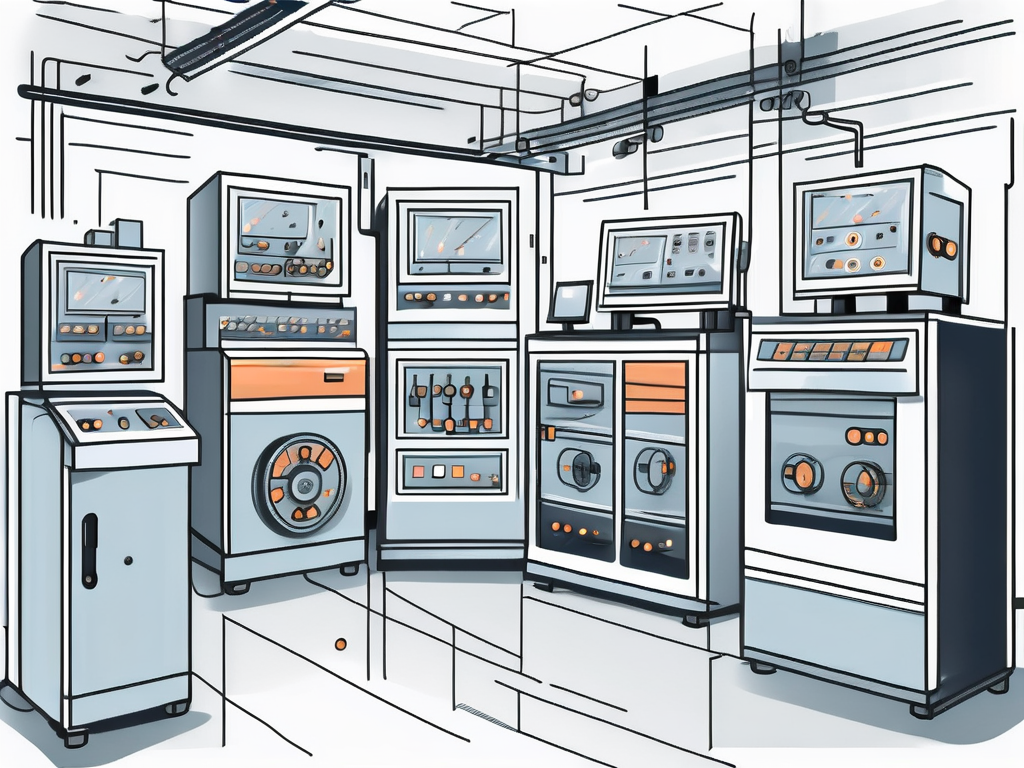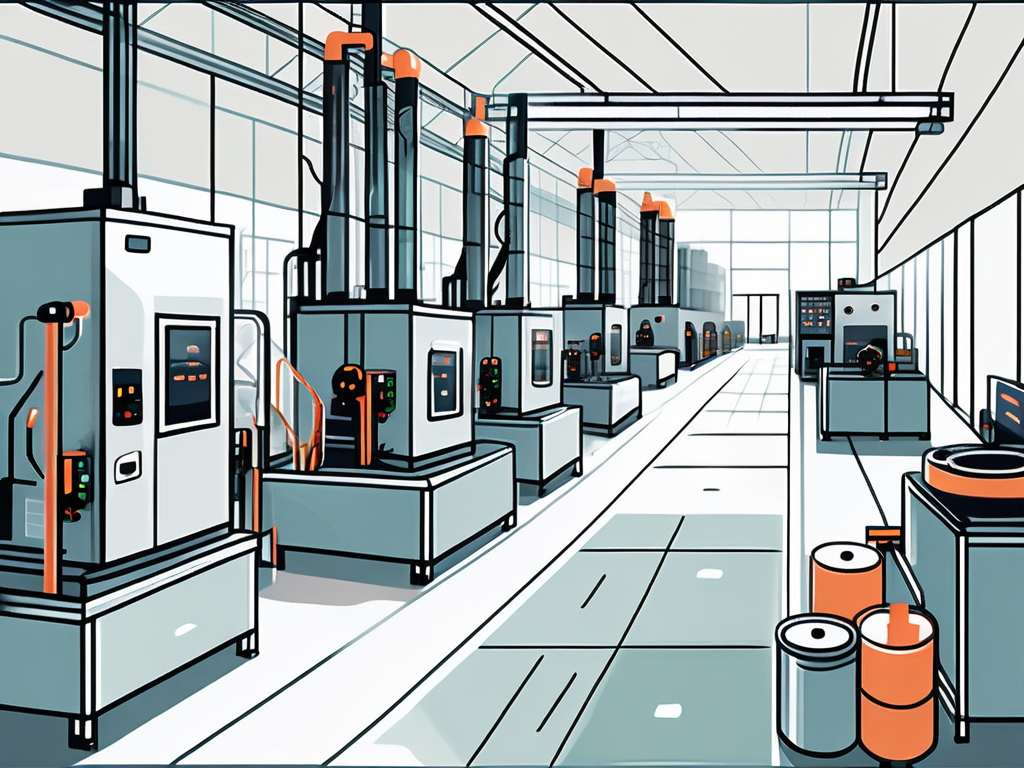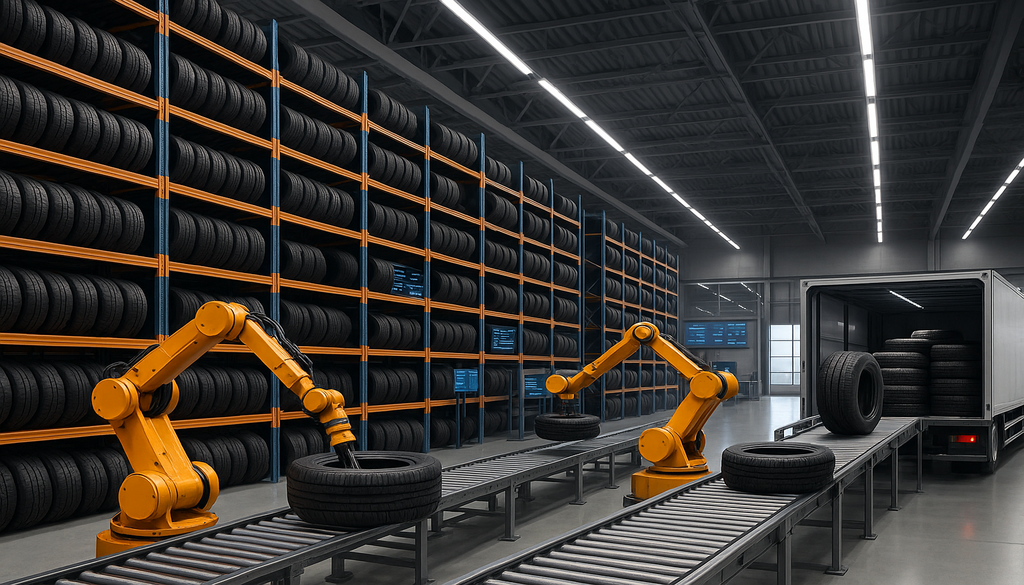Shop floor control systems play a critical role in the manufacturing industry, providing real-time visibility and control over production processes. In this comprehensive guide, we will delve into the various aspects of shop floor control systems, from defining their purpose to exploring their benefits and offering guidance on selecting the right system for your manufacturing needs.
Defining Shop Floor Control Systems
Shop floor control systems are a set of tools and processes that enable manufacturers to effectively plan, monitor, and manage their production operations. These systems bring together data from various sources, such as machine sensors, inventory systems, and quality control systems, to provide valuable insights into the status and performance of the production floor.
The Role of Shop Floor Control Systems in Manufacturing
Shop floor control systems play a pivotal role in ensuring smooth and efficient operations on the production floor. They enable manufacturers to track work orders, allocate resources, schedule production activities, and monitor progress in real-time. By providing visibility into the entire production process, these systems empower manufacturers to make informed decisions and take proactive measures to optimize production and meet customer demands.
Key Components of Shop Floor Control Systems
A shop floor control system typically consists of several key components, including:
- Production Planning: This component allows manufacturers to create production schedules, define routing and sequencing, and allocate resources based on capacity and demand.
- Inventory Management: Shop floor control systems integrate with inventory management systems to track raw materials, work-in-progress, and finished goods. This ensures that the right materials are available at the right time.
- Machine Monitoring: Real-time machine monitoring enables manufacturers to gather data on machine performance, utilization rates, and production output. This information helps identify bottlenecks, optimize equipment usage, and improve overall productivity.
- Quality Control: Quality control modules within shop floor control systems enable manufacturers to monitor and enforce quality standards throughout the production process. They provide real-time alerts and notifications for any deviations or anomalies, ensuring consistent product quality.
Another important component of shop floor control systems is maintenance management. By integrating maintenance management functionalities, manufacturers can ensure that their production equipment is properly maintained and serviced. This helps prevent unexpected breakdowns and reduces downtime, ultimately improving overall equipment effectiveness (OEE).
Furthermore, shop floor control systems often include labor management capabilities. These features allow manufacturers to track and manage labor resources, including employee schedules, time and attendance, and performance metrics. By having a comprehensive view of labor utilization, manufacturers can optimize workforce allocation and identify areas for improvement in terms of productivity and efficiency.
The Evolution of Shop Floor Control Systems
Over the years, shop floor control systems have evolved significantly, driven by advancements in technology and changing industry demands.
Shop floor control systems play a crucial role in modern manufacturing operations, serving as the central nervous system that coordinates and monitors production activities. From the early days of manual record-keeping to today’s era of automation and digitization, the evolution of these systems reflects a continuous quest for efficiency, productivity, and competitiveness in the manufacturing sector.
From Manual to Automated Systems
In the past, shop floor control systems relied heavily on manual record keeping and paper-based processes. However, with the advent of automation and digitization, manufacturers now have access to sophisticated software solutions that streamline and automate various production management tasks. Automated shop floor control systems eliminate the need for manual data entry, reduce human error, and provide real-time updates on production progress.
Automation has not only improved the speed and accuracy of data collection but has also enhanced decision-making processes on the shop floor. By integrating machine learning algorithms and artificial intelligence capabilities, modern shop floor control systems can analyze complex production data in real-time, enabling proactive decision-making to optimize production processes and resource utilization.
The Impact of Technology on Shop Floor Control
Technology has revolutionized shop floor control systems, enabling manufacturers to harness the power of data analytics, cloud computing, and the Internet of Things (IoT). These advancements have made it possible to collect and analyze vast amounts of data to gain valuable insights into production efficiency, identify optimization opportunities, and predict maintenance needs. By leveraging technology, manufacturers can achieve higher levels of operational efficiency and competitiveness.
Furthermore, the integration of IoT devices and sensors into shop floor control systems has enabled real-time monitoring of equipment performance and production metrics. This connectivity not only facilitates predictive maintenance practices but also enables manufacturers to implement agile production strategies that can quickly adapt to changing market demands and supply chain dynamics.
Types of Shop Floor Control Systems
Shop floor control systems can be broadly classified into two main types: process control systems and discrete control systems.
When it comes to shop floor control systems, there are a few additional categories that are worth exploring. One such category is the hybrid control system, which combines elements of both process control and discrete control systems. Hybrid systems are often used in industries that have complex manufacturing processes with both continuous and discrete aspects. These systems offer a versatile solution for managing diverse production requirements.
Process Control Systems
Process control systems are commonly used in industries where manufacturing processes involve continuous, uninterrupted operations. These systems monitor and control variables such as temperature, pressure, flow rate, and chemical composition to ensure consistent product quality. Examples of industries that employ process control systems include chemical processing, oil refining, and food and beverage production.
Another interesting aspect of process control systems is their integration with supervisory control and data acquisition (SCADA) systems. SCADA systems provide a centralized platform for monitoring, controlling, and analyzing the performance of process control systems. This integration enhances operational efficiency and enables real-time decision-making based on comprehensive data analysis.
Discrete Control Systems
Discrete control systems, on the other hand, are suitable for industries that produce discrete products or components, such as automotive, electronics, and consumer goods. These systems manage production operations that involve distinct steps and discrete units of output. Discrete control systems help manufacturers optimize production sequencing, manage work orders, and track the status of each component in real-time.
In addition to discrete control systems, batch control systems are another important category to consider. Batch control systems are used in industries where production occurs in batches or specific quantities. These systems automate the control of batch processes, ensuring consistency and efficiency in the production of items such as pharmaceuticals, chemicals, and processed foods.
Benefits of Implementing Shop Floor Control Systems
Implementing a shop floor control system offers numerous benefits for manufacturers looking to enhance their operational efficiency and productivity.
Shop floor control systems are designed to revolutionize the way manufacturing operations are managed. Beyond just improving efficiency and productivity, these systems also play a crucial role in enhancing communication and collaboration among different departments within a manufacturing facility. By providing a centralized platform for real-time data sharing and analysis, shop floor control systems facilitate seamless coordination between production, inventory management, and quality control teams.
Increased Efficiency and Productivity
Shop floor control systems provide real-time visibility into production activities, enabling manufacturers to identify bottlenecks, eliminate idle time, and optimize resource allocation. By streamlining production processes and minimizing downtime, these systems help drive up overall efficiency and productivity.
Moreover, the data collected and analyzed by shop floor control systems can be used to identify trends and patterns in production performance. This valuable insight allows manufacturers to make informed decisions about process improvements, equipment upgrades, and workforce optimization, further boosting operational efficiency and productivity.
Enhanced Quality Control
Quality control is a critical aspect of any manufacturing operation. Shop floor control systems integrate quality control measures throughout the production process, allowing manufacturers to monitor and enforce quality standards at every stage. By detecting and addressing any deviations or defects in real-time, these systems help ensure consistent product quality and customer satisfaction.
In addition to real-time quality monitoring, shop floor control systems also enable manufacturers to track and trace products throughout the production cycle. This end-to-end visibility not only ensures compliance with industry regulations and standards but also enhances transparency and accountability in the supply chain. By maintaining a comprehensive record of production data and quality metrics, manufacturers can easily conduct audits, investigate issues, and continuously improve their quality control processes.
Selecting the Right Shop Floor Control System
Choosing the right shop floor control system requires careful consideration of several factors.
Factors to Consider
When evaluating different shop floor control systems, manufacturers should consider factors such as their specific manufacturing processes, scalability requirements, integration capabilities with existing systems, ease of use, and vendor reliability. It is important to select a system that aligns with the unique needs and goals of your organization.
Understanding Your Manufacturing Needs
Before embarking on the selection process, manufacturers should have a clear understanding of their manufacturing needs and objectives. This includes analyzing current pain points, identifying areas for improvement, and defining desired outcomes. With a well-defined set of requirements, manufacturers can evaluate prospective shop floor control systems more effectively and make an informed decision.
In conclusion, shop floor control systems are indispensable tools for modern manufacturers. They enable organizations to optimize production processes, enhance quality control, and stay competitive in today’s fast-paced manufacturing landscape. By understanding the role, components, and types of shop floor control systems, and considering key factors in the selection process, manufacturers can implement a system that drives efficiency, productivity, and success.







